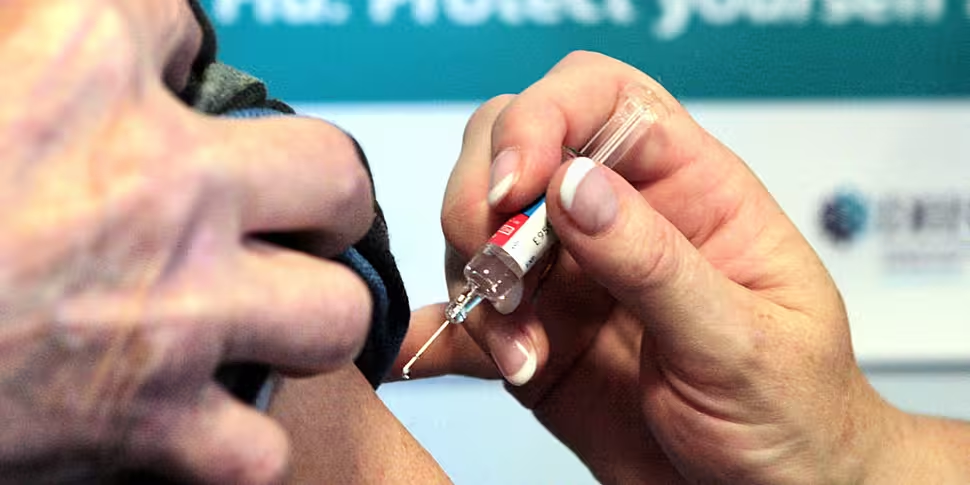The Health Service Executive (HSE) is urging people in at-risk groups to get vaccinated against influenza.
Flu causes severe illness and death in Ireland every year.
People aged over-65, people with long-term health conditions, healthcare workers and pregnant women are being urged to get the flu vaccination.
Figures show that vaccine uptake rates in people aged 65 and over increased in Ireland last year.
The following groups of at-risk people should be vaccinated:
- Everyone aged 65 years and over
- Pregnant women
- Anyone over six months of age with a long term illness requiring regular medical follow-up such as chronic lung disease, chronic heart disease, diabetes, cancer or those with lower immunity due to disease or treatment
- Residents of nursing homes and other long stay facilities
- People who have physical or intellectual disabilities
- Healthcare workers
- Carers of people in medical at-risk categories
- People in regular contact with pigs, poultry or water fowl
The HSE says it is important for all those in the at-risk groups to be vaccinated again this year, as the virus strains in the vaccine have changed since last year.
This year's vaccine gives broader protection against flu than the vaccine used in previous years, because it protects against four of the common flu virus strains expected to be circulating this year based on advice from the World Health Organisation (WHO).
The vaccine used in previous seasons protected against three strains of the flu virus.
The HSE's flu vaccine lead, Dr John Cuddihy, said that the flu vaccine is a lifesaver because flu can be a very serious and sometimes deadly disease - with potentially 1,000 flu-related deaths in Ireland during a severe flu season.
He said: "Recent national uptake figures indicate that 68.5% of people aged 65 and over who hold a medical card or GP visit card received the flu vaccine during the 2018-2019 flu season, a substantial increase on last year when the uptake rate was 57.6%.
"People need to remember that flu causes severe illness and death in Ireland every year.
"That is why those who are most vulnerable to the complications of flu need to get vaccinated.
"The flu vaccine is the best defence against flu, yet every year many people in the at-risk groups fail to get vaccinated and so put themselves at risk of serious illness or even death."
Flu vs the common cold
The vaccine reduces infection and associated illnesses and hospitalisation.
The symptoms of flu usually develop over a matter of a few hours - and include a high temperature, sore muscles, dry cough, headache and severe fatigue or tiredness.
Flu is different from the common cold, which tends to come on more gradually and usually includes a runny nose and a normal temperature.
It is spread by coughing and sneezing, so people are advised cover their nose and mouth with a tissue and dispose of it as soon as possible and wash their hands with soap and water.
Anyone who gets flu should stay at home, rest, drink plenty of fluids and use over-the-counter flu remedies to ease symptoms.
People in high-risk categories should contact their GP if they develop flu symptoms.









